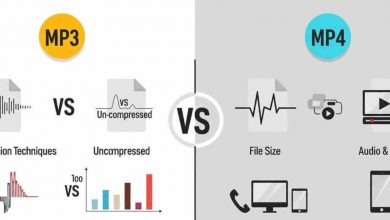La Habra Tooth Extraction Cost and Affordable Options You Should Know

Facing a tooth extraction can be stressful, both for your comfort and your finances. Whether your dentist has recommended a simple removal or a more complex surgical extraction, understanding what influences the price and how to find affordable solutions is key to feeling confident about your care. If you’re searching for clear, local information and budget-friendly options, https://www.summit-smile.com/how-much-does-tooth-extraction-cost provides helpful details and step-by-step guidance for patients who want to make informed decisions.
What Factors Influence Tooth Extraction Cost?
Tooth extraction costs can differ widely from patient to patient and even from one dental office to another. Several main factors impact what you’ll pay:
- Type of Extraction:
- Simple Extraction: This is for teeth that are visible and easily accessible. It typically involves numbing the area and gently removing the tooth.
- Surgical Extraction: Needed for teeth that are impacted, broken at the gumline, or require the dentist to cut the gum or bone. These are more complex and cost more.
- Tooth Location: Removing molars or wisdom teeth often costs more than extracting front teeth because of their roots and positioning.
- Condition of the Tooth: Severely decayed, broken, or infected teeth may require extra steps, which can raise the price.
- Experience of the Dentist: Oral surgeons or highly experienced dentists may charge more but often provide advanced care and sedation options.
- Anaesthesia or Sedation: Local anaesthesia is usually included in the base price, but if you need nitrous oxide, oral sedation, or IV sedation, these may add $50 to $500 or more to your bill.
- Location and Overhead Costs: Urban dental offices tend to charge more than rural or suburban practices, due to higher rents and operational expenses.
Typical Tooth Extraction Price Ranges
- Simple Extraction: $100 – $350 per tooth
- Surgical Extraction (including wisdom teeth): $250 – $800+ per tooth
- Other Possible Fees: X-rays ($25–$200), sedation ($50–$500+), and after-hours emergency care ($100–$300 extra)
Always ask for a detailed estimate from your dental office before scheduling your procedure. Comprehensive practices often include the consultation, basic x-rays, and aftercare instructions in their quoted fees, while others may itemize each service.
What’s Usually Included in the Extraction Fee?
Understanding what’s covered is essential to avoid surprises. Most reputable dental offices include:
- Initial consultation and exam: Your dentist assesses the tooth and explains your options.
- Basic dental X-rays: To evaluate roots, surrounding bone, and nerves.
- Local anaesthesia: To keep you comfortable during the procedure.
- The extraction procedure itself: Whether simple or surgical.
- Standard post-operative instructions: To guide your recovery.
- Follow-up visit: To ensure you’re healing properly.
If you require additional care, such as prescription medications, extractions of multiple teeth, or advanced imaging, these may be billed separately.
Affordable Options for Tooth Extraction
If cost is a concern, several strategies and resources can help you manage expenses:
- Dental Insurance: Most dental insurance plans cover part or all of medically necessary extractions, especially if the tooth is infected or causing pain. Your coverage might range from 50% to 80%, but always check your policy for specific details about deductibles, copays, and annual maximums.
- Flexible Payment Plans: Many dental offices offer payment plans that let you spread the cost of care over several months. These plans may be interest-free or have low fees, making them a helpful option for families or individuals without insurance.
- Dental Membership or Savings Plans: Some practices offer their own in-house membership plans, providing discounted rates for common procedures including extractions in exchange for a low annual or monthly fee. These plans are especially valuable if you lack dental insurance.
- Third-Party Financing: Options like CareCredit, LendingClub, and other healthcare financing services let you pay for your extraction over time. Many offer interest-free or low-interest promotional periods.
- Use Your FSA or HAS: If you have a Flexible Spending Account (FSA) or Health Savings Account (HSA), you can use these pre-tax funds to pay for your extraction and related dental costs, lowering your out-of-pocket expense.
- Compare Multiple Providers: Don’t hesitate to get a second opinion or quote. Prices can differ significantly between providers, especially for surgical extractions or sedation services. Comparing estimates can help you find the best balance of affordability and expertise.
- Dental Schools or Community Clinics: If cost remains a major barrier, some dental schools and nonprofit clinics offer lower-cost extractions performed by supervised dental students or experienced dentists volunteering their time.
Why Prompt Extraction Is Important
Delaying the removal of a problematic tooth can lead to severe pain, infection, swelling, and even more costly dental emergencies. Early intervention not only relieves discomfort but also protects your long-term health and prevents complications that could affect your overall well-being.
While the idea of a tooth extraction and its cost, can be overwhelming, knowing your options puts you in control. From dental insurance and membership plans to payment options and community resources, there are many ways to access affordable, high-quality care. Talk openly with your dentist about your concerns, request a detailed estimate, and ask about payment arrangements that work for your budget. Taking proactive steps today will ensure you receive the care you need without unnecessary financial stress, helping you maintain a healthy, pain-free smile for years to come.


